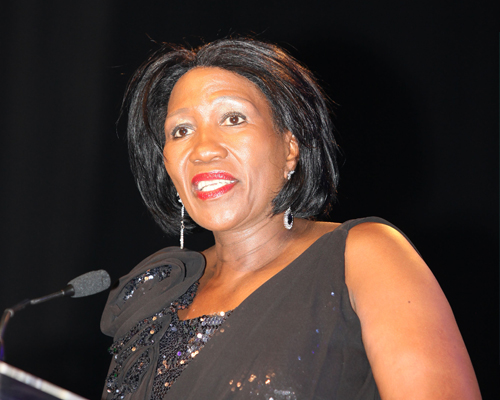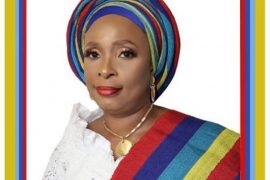In line with achieving equal opportunity for women in the world, it is important to note that this may never be possible if women are not well educated. A number of discussions by business experts and top government officials have revealed that in some cases, there are no qualified women to fill vacant positions. This may not only call for a reevaluation of strategies in the advocacy process, but a change of focus channelled towards emphasizing proper education for women across the world.
These were some of the points outlined by Dr Namane Magau, Chair NTP & Bertha Gxowa Foundation, and Managing Director Business & Development Solutions Limited South Africa in an interview with Amazons Watch Magazine. Excerpt:
You have a profile of excellence, holding a doctorate in Education from Harvard, and being the managing director of a successful consulting firm, with experiences as a director in a number of companies, in South Africa. Please share with us your background, growing-up experiences, and journey to entrepreneurship.
I was born and brought up in a family that valued education. My father and mother were educators and encouraged all their children to develop their children to learn and develop talents. I was also privileged to be a part of a family both on my father and mother’s side that was educated and inspired excellence. They were not only wonderful role models, but they were willing to offer education support to any well-deserving relative. My vision about my future was therefore shaped by the impact that my family had on me.
You have acquired the best of education, with well-respected tertiary qualifications, both within and outside the shores of your country. Based on your experiences and exposure to the educational system of your country and that of a developed country, how will you assess Africa’s educational system in terms of equipping the continent’s youths for good leadership?
Studying at Harvard provided one with an intellectually enriching environment where one learns from leading faculty and dynamic students from all over the world. In particular, it enhanced my appreciation of my own thinking and to trust my thinking more. Within that environment you also realize how the unique experiences you bring add to the richness of dialogue, thinking and learning the process. Africa’s education systems are also evolving and being shaped by the social, political, economic and technological developments in the countries. With the dividend of youth and having a large part of the population being young, Africa has a great potential for success. It is therefore important that education is prioritized for African youth to create the human resource power required to support the growth of the economies. The education network within the continent and across the continent is an important platform that has to be nurtured to strengthen development in the region. Science & Technology also need to be promoted to ensure that the youth are enabled to contribute to innovation and new solutions that will enhance industrialization in the continent and eradicate poverty and disease.
You are committed to youth development, engagement, and empowerment. Please tell our readers some of the ways you have demonstrated this passion and the successes recorded so far.
I have been fortunate to have an opportunity to bring to South Africa a young bright student from Liberia and to sponsor her graduate and post-graduate studies. Tanneh Tarpeh has completed her BCom, BCom Hon (UNISA) and recently Masters in Commerce at the University of Pretoria with Distinction. She will add to the pool of expertise in Liberia and the continent. As President of the International Women’s Forum, we create a platform for Young Women Professionals to enable them to connect, share ideas and learn from each other. As Chair of Bertha Gxowa Foundation, we are working with Charlotte Maxeke Foundation on the Legacy Scholarship to support young women to get exposure and study in the United States. Charlotte Maxeke is one of our leading icons who was the first African woman to get a Science Degree in the continent. It is in honour of this great legend that the AME Church in partnership with Charlotte Maxeke Center will be joining hands in the establishment of the Legacy Scholarship for young women from the continent in October.
Business and Development Solutions, your company, is one of your efforts towards nation-building. Please tell us more about this company and its contributions to your country’s sustainable development.
The Company including my individual work builds on the extensive policy development work that I have done in National Projects like Leading the Human Resource Development Strategy for the Reconstruction and Development Program at the beginning of the new democracy in South Africa. I also Chaired the Future Needs and Priorities Task Team to guide the alignment of Higher Education with the needs of Industry. The process promoted the partnership between the Science System in the country and industry and led to the establishment of institutions like Innovation Hub. As part of the Team led by Dr Phumzile Mlambo Ngcuka, we established the Technology For Women in Business (TWIB) a Program established to facilitate the accessing of appropriate Technologies for Women in Business. This was done to raise awareness about the importance of technology in business and to enable Women-owned enterprises to be more efficient with the use of appropriate technologies.
I have done projects in Health to promote human resource management process and partnered with other companies in the implementation of knowledge management and performance management solutions. I also serve in my personal capacity on several Boards and utilize the experience I have had as an Executive Director. I am currently Chair of NTP (Nuclear Technology Program) one of the leading global companies providing diagnosis and treatment of cancers.
I contribute to sustainable development in the country also through my involvement in policy and research like the UN Women project on Affirmative Procurement for Women-Owned Enterprises. The study under the leadership of UN Women will contribute significantly to bridging the income gap between women-owned enterprises and that of their male counterparts. The study will provide important indicators on how to extend the participation of women in public and private sector procurement, and enhance the sharing of good practice in promoting the growth of women-owned enterprises.
As President of Business women’s Association in 2004, I introduced the first Census on women Corporate Leaders in South Africa. The Census provided a report on the levels of participation of women corporate leaders in South Africa and compared it with those of women in countries like the United States, Canada, UK, and Australia. The Census which was released annually raised awareness in the country about the representation of women leadership in JSE listed Companies and leading State-owned Enterprises. Over the years we saw levels of representation improve even though the process still requires urgency.
As President of the International Women’s Forum, I worked with Hannah Edinger in Frontier Advisory to extend the study of the participation of women in corporate leadership to five African Countries. We partnered with UNDP and had to do a preliminary socioeconomic analysis as advised by UNDP to ensure that the study reflected the dynamic socioeconomic situations in the various countries. The current UN Women study on Affirmative Procurement for Women-Owned Enterprises will also shed further light on the work done then.
Findings reveal that South Africa has a very high business failure rate; some reports have attributed this trend to challenges ranging from the business environment, funding, the educational system, to other cultural and social challenges. In the light of your experiences, as a stakeholder in your country’s educator sector, a social entrepreneur and successful businesswoman, what is your take on this and what would you say is the secret to your success?
Continuous learning and quality relationships sustain my success. The business environment changes all the time and presents challenges and opportunities. The experience I gained as an executive in State-owned enterprises equipped me with skills to manage dynamic changes and opportunities in the market environments in which I operate. It has also been important to establish a solid network of business partners and service providers. Without a viable network, the business cannot succeed.
The challenge of access to funding is more critical for women. The Government’s 2015 report on the status of women in South African economy, noted the findings that only 2.9 per cent of women entrepreneurs received assistance from a commercial bank in 2009, which has led a large proportion of adult women in South Africa to rely heavily on savings circles, government grants, and borrowing from money lenders. What are some of the gender-based challenges you have faced in your business life and how did you sidestep them?
With quality partners, one is able to share risks and to ensure that appropriate and affordable funding is secured for business initiatives. When we went into our first major investment venture with a few women, we thoroughly assessed the opportunity and prospect and worked with our partners to develop a mutually beneficial business platform which did not encumber us in debt. It is however important that public and private sector institutions find more meaningful ways of enabling women-owned enterprises in extending the participation of women in the economy.
You were involved in the research and publication of the African Union Africa Gender Score Card for 2016. The report says “women are the backbone of Africa’s economy and remain key actors in many of the core economic sectors… but are concentrated in the lower rungs of these sectors, working in difficult environments with minimal pay.” Other findings have estimated the South African gender pay gap to be between 15%-17% on, average. What is your take on this and how do you think this trend can be reversed?
The African Union Africa Gender Score Card for 2016 notes a very critical point which is also indicated by the recent World Economic Forum‘s Global Gender Gap Report that points out that the global pay gap between men and women is only expected to close in 2186. South Africa is ranked 15 out of 144 countries with women’s earnings averaging about R130,000 annually compared to men earning on average R210,000 annually. The gains made with more women going into Higher Education and in some sectors, even more, women graduating than men, still need to be reflected in the bridging of the pay gap between men and women. Enabling government policies and corporate strategies are making inroads with more women being promoted to leadership positions and salary parity introduced in leading institutions. The challenge is however still huge, and new concerns are emerging relating to the absorption of women in corporate leadership as many do not stay in their positions. Dynamic leaders in the public and private sector are looking at ways of enhancing retention of women corporate leaders. There is a need to promote the creation of environments which allow diversity to thrive.
How do you balance your role as a mentor and inspiration to South African young women, with your family and business obligations?
I consider it a special privilege to be a mentor and I am inspired and enriched by those I mentor. Young people of today face much greater challenges than we did, and I find their tenacity and courage fascinating. As I listen and guide them, I also learn a lot as they extend my thinking. I find the process both humbling and empowering.
My children are adult professionals and that allows me more time to devote to my business and engage in various development initiatives. I am also learning to be a good grandmother and make even the shortest times I spent with my grandkids special. I had a wonderful grandmother who made every one of her grandchildren feel special, am trying to capture what she shared with us in how I relate to my grandchildren.
I appreciate the impact Tanneh had on my family and that through her presence in our family my children feel more a part of the continent. I would like to promote connections across the continent to strengthen research, innovation and economic empowerment of women and young people in our continent.




